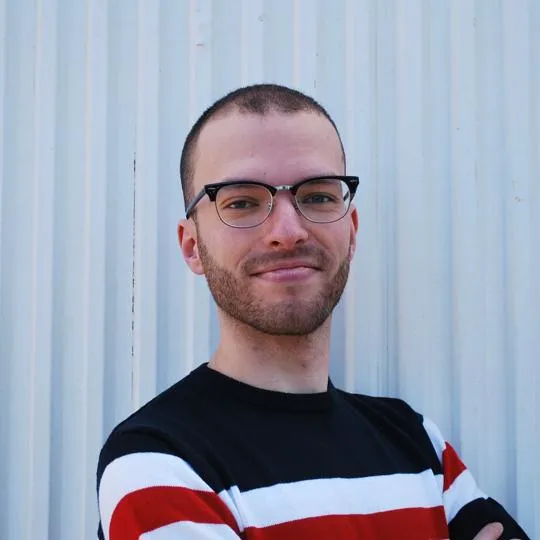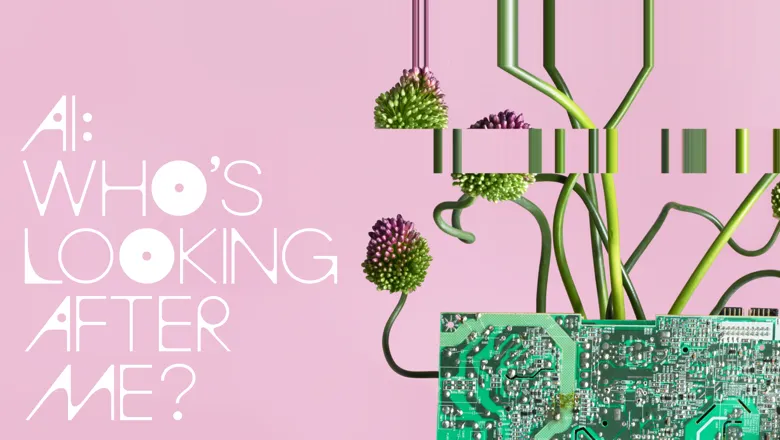King's College London researchers, in collaboration with artist group, TripleDotMakers and children’s heart charity, ECHO Teens have developed ‘Heartificial Intelligence’; an exhibition now showing at Science Gallery London.
Heartificial Intelligence investigates the role that technology and community play in the healthcare journey of patients. This interactive installation emerged from a collaboration between artist group TripleDotMakers, Evelina Children's Heart Organisation (ECHO) Teens - a group of nine young people who have congenital heart conditions and their siblings - and researchers from the School of Biomedical Engineering and Imaging Sciences: Cristobal Rodero, Tareen Dawood and Tiarna Lee.
To develop this exhibit, TripleDotMakers built a device they call an ‘Art Machine’. This is a dedicated computer that uses a variety of inputs to make different visual reactions using AI. The machine had a microphone to record audio data, a depth camera to record 3D objects and movement, and a heart sensor to record heart rate. These inputs gathered personal data and, through the use of generative AI, affect the movement of particles on a huge projected screen.
Through a series of online and in person workshops, the group discussed the possibilities and limitations of AI research. They set up the ‘Art Machine’ for a day long workshop and spent time interacting with the different inputs.
We wanted the group to play with this generative AI and take control of their own data to explore how our data is being gathered all the time, but that we should still have agency over how it’s used. I hope that when you’re interacting with the piece you feel invited into this conversation and you can sense the thoughtfulness, passion, and eloquence of the group, as I did.
Annie Woodson, artist, TripleDotMakers
During their workshops, the group decided on the heart rate monitor as the input they’d like visitors to be able to experience in the exhibition. TripleDotMakers then utilised drawings created by the participants to animate on screen in sync with the heart rate of the person connected to the sensor. While interacting with the projections in the exhibit you can also listen to recorded conversations between the researchers and members of ECHO Teens.
Collaborating on this project enabled PhD Student, Tiarna Lee to experience a new perspective to her work.
In my research I can often feel disconnected from the real world as I rarely get to speak to people who it directly affects. It was an invaluable opportunity to talk to the teens, share our different perspectives and work on a piece of art collaboratively. There were tears, smiles, and laughter, and it's an experience I'll never forget.
Tiarna Lee, PhD Student, School of Biomedical Engineering & Imaging Sciences
“I enjoyed the whole process of developing the project, I was very happy with the final result and I'm glad that other people enjoyed it, too,” said an ECHO Teen participant.
Heartificial Intelligence provides a safe space for young people with heart conditions and their siblings to share their lived experience with the wider public.
“We learned that collaboration makes us stronger, individually we could talk about how AI can impact healthcare but by working in a team of young people, charity, artists and researchers, our imagination created a community wider than the young people affected by heart conditions could imagine,” said ECHO CEO Samantha Johnson.
Experience ‘Heartificial Intelligence’ as part of the Science Gallery London’s latest season ‘AI: Who’s Looking After me?’ The free exhibition is open now until January 2024. This project was coordinated by the School of Biomedical Engineering & Imaging Sciences Public Engagement team and funded by a Wellcome Research Enrichment Award.






